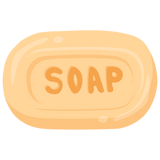
What are ASTM Standards for Medical & Surgical Face Masks?
Posted by Pankaj Dhiman on Apr 15th 2024
In the midst of a global health crisis, face masks have become a ubiquitous symbol of safety and protection. Whether it's to prevent the spread of infectious diseases or to shield healthcare workers from potential hazards, the demand for high-quality medical and surgical face masks has never been higher.
But how can you be sure that the mask you're wearing or producing meets the necessary standards for safety and efficacy? That's where ASTM International steps in. In this comprehensive guide, we'll delve into the world of ASTM standards for medical and surgical face masks, unraveling their significance and shedding light on why they matter.
Must Read: Buy IV Infusion Set Online at Best Price
What is ASTM International?
First things first, let's familiarize ourselves with ASTM International. Formerly known as the American Society for Testing and Materials, ASTM International is a globally recognized leader in the development and delivery of voluntary consensus standards. Established in 1898, ASTM International serves as a trusted resource for standards development, technical expertise, and conformity assessment solutions across a wide range of industries, including healthcare.
Shop Now: Defender Safety ASTM Level 3 Surgical Face Mask, Pleated, Tie-Back, Blue
Understanding ASTM Standards for Medical Masks:
When it comes to medical and surgical face masks, ASTM International has established a set of standards to ensure their safety, performance, and quality. These standards, known as ASTM F2100, outline specific requirements and test methods for various aspects of mask construction and performance, including:
- Bacterial Filtration Efficiency (BFE): BFE measures the percentage of bacteria filtered out by the mask material at a specified flow rate. ASTM F2100 sets minimum BFE requirements for medical masks to ensure effective bacterial filtration, typically ranging from 95% to 98%.
- Particle Filtration Efficiency (PFE): Similar to BFE, PFE measures the filtration efficiency of mask materials against particles of a specified size. ASTM F2100 establishes minimum PFE requirements for medical masks, helping to reduce the transmission of airborne particles.
- Fluid Resistance: Medical masks must also demonstrate resistance to penetration by synthetic blood at various pressures. ASTM F2100 categorizes masks into different levels of fluid resistance, ranging from low to high, to ensure adequate protection against fluid splashes and sprays.
- Breathability: ASTM F2100 specifies test methods for evaluating the breathability of medical masks, ensuring that they provide sufficient airflow while maintaining effective filtration.
- Flammability: Medical masks are subject to flammability testing according to ASTM F2100 standards to assess their resistance to ignition and the spread of flames.
Shop Now: Defender Safety ASTM Level 1,2,& 3 Procedure Face Masks
Why ASTM Standards Matter:
In the realm of medical and surgical face masks, adherence to ASTM standards is crucial for several reasons:
- Quality Assurance: ASTM standards provide a benchmark for manufacturers to ensure that their products meet minimum requirements for safety and performance.
- Consistency: By following ASTM standards, manufacturers can maintain consistency in product quality and performance, fostering trust and confidence among healthcare professionals and consumers.
- Regulatory Compliance: ASTM standards for medical masks are often referenced by regulatory agencies, such as the Food and Drug Administration (FDA), to assess the safety and efficacy of these products for use in healthcare settings.
- Enhanced Protection: Masks that meet ASTM standards offer a higher level of protection against infectious agents and other airborne hazards, reducing the risk of transmission and exposure in healthcare environments.
Shop Now: Demetech DemeMask ASTM Level 3 Surgical Mask with Horizontal Ties
The Bottom Line:
In the fight against infectious diseases and emerging health threats, the role of medical and surgical face masks cannot be overstated. By adhering to ASTM standards, manufacturers can ensure that their products provide the necessary level of protection and performance required in healthcare settings.
Whether you're a healthcare professional seeking reliable personal protective equipment or a consumer looking for high-quality masks, remember to prioritize ASTM-compliant products for maximum safety and peace of mind.
Must Read: Top 5 Best Selling Hypoallergenic Tapes in the US 2024
FAQs:
Q: What is the difference between medical and surgical face masks?
A: While both medical and surgical face masks are designed to protect against the transmission of infectious diseases, surgical masks are primarily intended for use by healthcare professionals during surgical procedures, while medical masks are suitable for general medical use.
Q: Are ASTM standards mandatory for medical masks?
A: While adherence to ASTM standards is not mandatory for all medical masks, they are widely recognized as industry best practices for ensuring quality, safety, and performance.
Q: How can I identify ASTM-compliant masks?
A: ASTM-compliant masks are typically labeled with information indicating their compliance with specific ASTM standards, such as ASTM F2100. Look for markings or labels on the packaging or product itself to verify compliance.
Q: Can I use non-ASTM-compliant masks for medical purposes?
A: While non-ASTM-compliant masks may still provide some level of protection, it's recommended to prioritize ASTM-compliant masks for medical purposes, as they undergo rigorous testing to ensure their safety and efficacy.
In conclusion, ASTM standards play a vital role in ensuring the quality and performance of medical and surgical face masks, safeguarding the health and well-being of both healthcare professionals and the general public. By understanding and prioritizing ASTM-compliant products, we can collectively contribute to a safer and healthier future.





























































